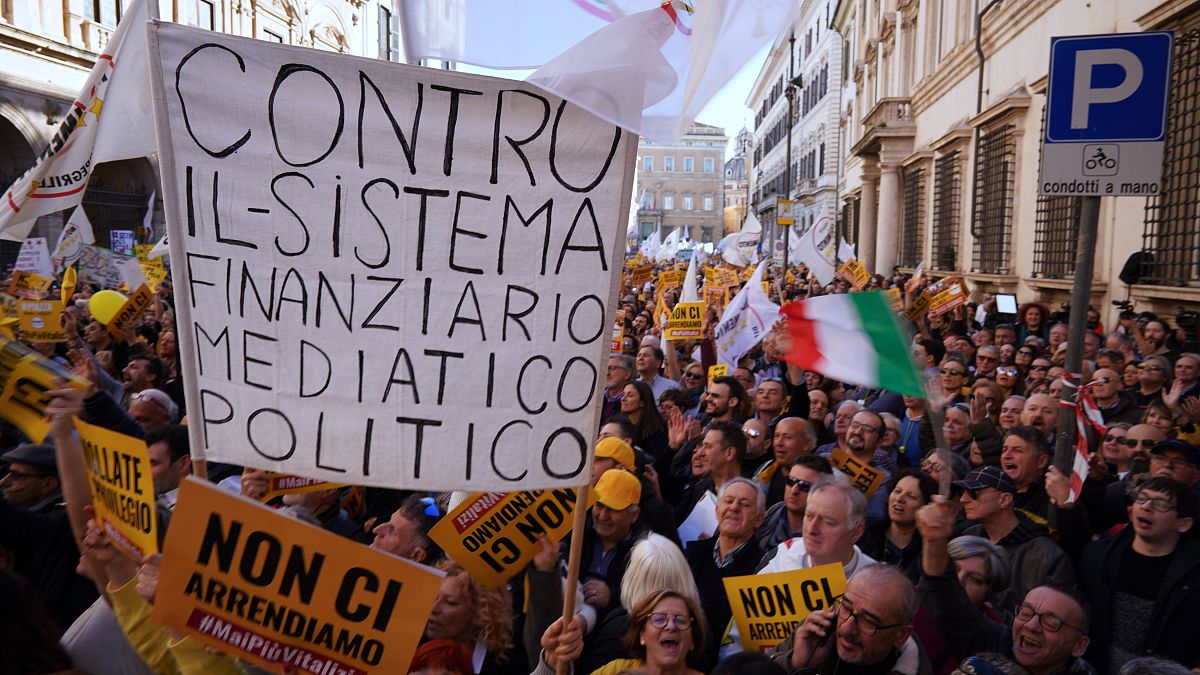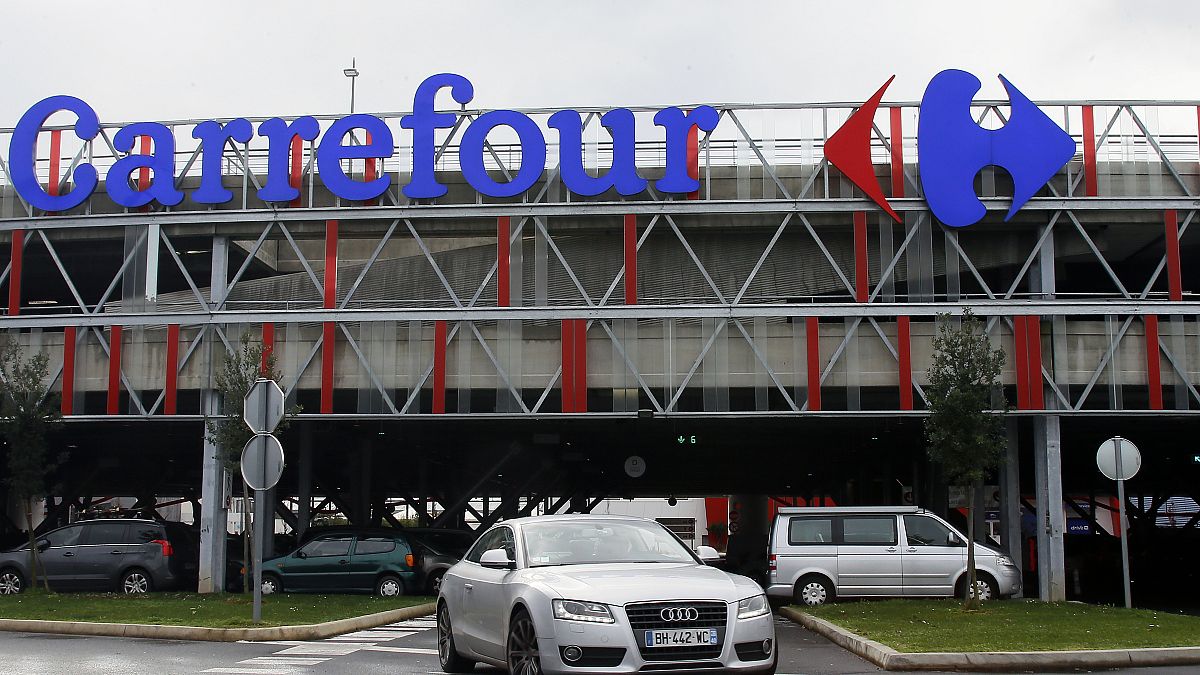Vomiting protesters storm EU summit in ‘colonialism’ row
The bloc is pinning its hopes on renewable hydrogen to replace natural gas. But not all green campaigners are convinced.
BRUSSELS — A meeting of top ministers and energy bosses in Brussels ground to a halt Monday after demonstrators gained access to the event, vomiting green fluorescent liquid into sick bags in protest at what they say is a bid to give fossil fuel firms control of resources in the developing world.
Four activists disrupted the Hydrogen Week event, which is co-hosted by the European Commission and includes speeches from top politicians and officials from countries including Germany, Hungary, the Netherlands and the EU.
European Commission President Ursula von der Leyen has personally championed a multi-billion euro plan to produce and import a combined total of 20 million tons of the clean-burning fuel as an alternative to natural gas. Many overseas projects being funded by the EU are in South America and North Africa.
Speaking to POLITICO, Chrissie Rose, a member of the Action Organising Coalition behind the protests, said Hydrogen Week is “another attempt to greenwash the image of European oil and gas companies, who depend on clandestine practices, imperial violence and colonial control to profit.”
At the same time, pro-Palestinian activists joined calls to disrupt the event over one of its sponsors, Italy’s Snam, which part-owns a gas pipeline connecting Israel to Egypt with infrastructure off the coast of Gaza.
“Snam is not only complicit in this genocide but actively lines its pockets as our people are massacred,” said Naji Muhammad, a campaigner with Global Energy Embargo for Palestine. “We need a comprehensive energy embargo to ensure an end to the use of energy in fuelling genocide.”
A Snam spokesperson told POLITICO the allegations were “definitely not appropriate” and that the pipeline is “a rare example of regional cooperation.”
Jorgo Chatzimarkakis, chief executive of trade association Hydrogen Europe, denied producing the gas — which can power heavy industry as well as vehicles — has a disproportionately negative impact on developing nations.
“Claims of ‘colonialism’ ignore the fact that all hydrogen-related agreements are being made with the informed consent of these countries’ governments, and that the West will not be extracting the sunshine or wind power from these countries,” he said.
But some activists in countries where renewable hydrogen projects are being sited say the industry is designed to speed Europe’s green transition while leaving them with the consequences.
“Chile’s ambition to produce the cheapest hydrogen in the world hides the sacrifice of territories and ecosystems crucial to the sustainability of life in our region and on the planet,” said Natalia Lueje, a campaigner with Sustentarse in Chile.
What's Your Reaction?



















































